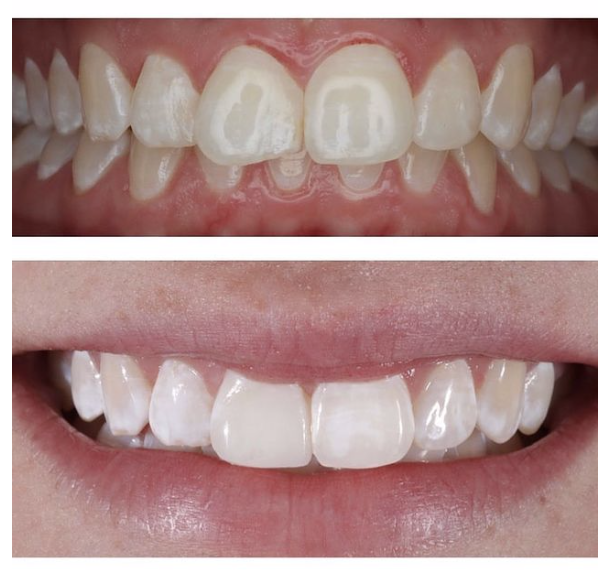Composite Veneers
Composite Veneers, also known as dental composite veneers or resin veneers, are a cosmetic dental treatment offered at Brisbane Smile Boutique Dentists used to improve the appearance of a person's teeth. They are a more affordable and less invasive alternative to porcelain veneers. Here's what you need to know about composite veneers:
Material: Composite veneers are made from a tooth-coloured resin composite material. This material can be directly bonded to the teeth to enhance their appearance.
Purpose: Composite veneers are primarily used for cosmetic purposes. They can address various dental issues, including discoloured teeth, chipped or cracked teeth, gaps between teeth, misshapen teeth, and minor alignment issues.
Application: The application of composite veneers involves a straightforward and minimally invasive process. It typically doesn't require the removal of a significant amount of natural tooth structure, as is often the case with porcelain veneers.
Procedure: The process usually involves the following steps:
Consultation: Your dentist will assess your oral health and discuss your goals for treatment.
Preparation: In some cases, minimal tooth enamel may be removed to create space for the veneer.
Colour Matching: Your dentist will select a composite resin that closely matches the color of your natural teeth.
Bonding: The resin is applied to the tooth surface and shaped to create the desired look.
Curing: A special light is used to harden the resin and bond it to the tooth.
Finishing: The veneer is polished to achieve a natural and aesthetically pleasing appearance.
Benefits:
Quick results: Composite veneers can often be completed in a single dental visit.
Less expensive than porcelain veneers.
Reversible: Unlike porcelain veneers, composite veneers can be adjusted or removed without significant damage to the natural teeth.
Natural appearance: When done well, composite veneers can provide a natural and aesthetically pleasing look.
Maintenance: Proper care and maintenance are essential to ensure the longevity of composite veneers. This includes regular dental check-ups, good oral hygiene, and avoiding habits like biting on hard objects, teeth grinding, or consuming staining substances.
Durability: Composite veneers are generally less durable than porcelain veneers and may require more frequent touch-ups or replacements over time.
Cost: Composite veneers are typically more affordable than porcelain veneers, making them a popular choice for those seeking cosmetic improvements on a budget.
It's important to consult with a qualified dentist to determine whether composite veneers are the right option for you and to discuss your specific dental concerns and goals. The success of composite veneers depends on the skill of the dentist and the quality of the materials used.

